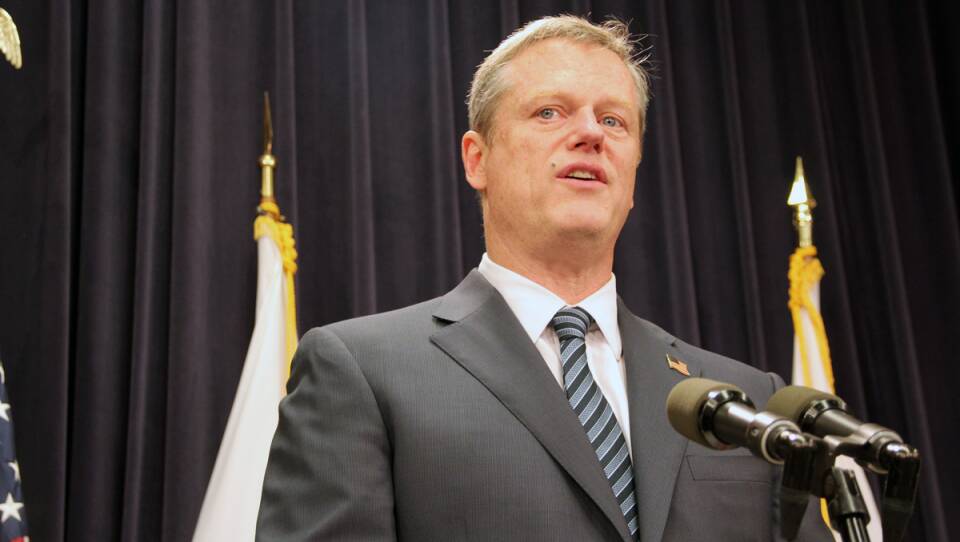Gov. Charlie Baker said Thursday he is launching a new effort to expand the opportunities for minority- and women-owned businesses to get work on government contracts, with legislation that will allow state agencies to set new targets for including diverse businesses.
The announcement comes six weeks after an investigationby WGBH News' New England Center For Investigative Reporting found that the value of state contracts won by minority-owned businesses has declined since the 1990s.
Baker had previously disputed the conclusions of that investigation, telling Boston Public Radio that “I’m pretty sure we are doing better than we were doing when we took office.”
But Thursday he acknowledged "we recognize that there is more work to be done to further encourage participation by diverse business owners." Baker said the revisions he is proposing will "promote greater participation by minority- and women-owned businesses and public construction projects, and especially for small businesses."
Baker is proposing legislation that would allow the state agency that manages most major construction projects -- the Division of Capital Asset Management and Maintenance -- to require prime contractors to meet specific goals for hiring minority- and women-owned businesses as subcontractors on major projects. The legislation would also reduce administrative requirements for small companies to bid for subcontracts on major state construction projects.
Baker is also promising to change the way the DCAMM sets goals for the participation of minority and women contractors, setting separate goals for each category rather than one combined goal. The current combined goal is 10.4%; Baker said the new goals will be 4.2% for minority-owned businesses and 8.8% for women-owned businesses.
"What I heard today was a positive response to WGBH," said Segun Idowu, executive director of the Black Economic Council of Massachusetts, who applauded Baker's "efforts to acknowledge that the state has more work to do when it comes to contracting with minority owned businesses, particularly black owned businesses." Idowu said it was in particular a "positive step in the right direction that we are unbundling the goals and focusing specifically on minority owned businesses separate and apart from women owned businesses, so that we can be more intentional about marketing these opportunities and getting business for folks of color."
State and local government agencies in Massachusetts pay billions of dollars to contractors every year for a vast array of goods and services. But the NECIR investigation showed that minority businesses — and black-owned businesses in particular — see only a tiny fraction of this money, and that fraction has shrunk over the years.
Minority-owned businesses were awarded $135 million less in state contracts in 2018 than they were in 1998 based on inflation-adjusted dollars, state records show. That’s a drop of 24%.
NECIR also analyzed 13,000 large construction and services contracts publicly announced by state and local agencies between 2008 and 2018 and found only about 250 were awarded to minority-owned business.






